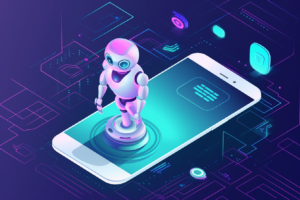10 Best Books on Artificial Intelligence (AI) to read
Artificial intelligence (AI) is rapidly transforming our world, revolutionizing industries, and reshaping the human experience. As AI continues to evolve, it’s crucial to understand its implications, potential, and ethical considerations.
Whether you’re a tech enthusiast, a business leader, or simply curious about the future, these 10 groundbreaking books will provide you with insights into the fascinating world of AI:
1. Life 3.0: Being Human in the Age of Artificial Intelligence by Max Tegmark
Renowned physicist and cosmologist Max Tegmark explores the profound implications of AI, delving into potential scenarios for the future, from symbiosis to superintelligence. He examines the ethical dilemmas and societal transformations that could arise as AI becomes increasingly sophisticated.
Who Should Read It: Anyone interested in the big-picture questions surrounding AI and its impact on humanity.
2. Superintelligence: Paths, Dangers, Strategies by Nick Bostrom
Oxford philosopher Nick Bostrom delves into the potential dangers of superintelligence, AI that surpasses human intelligence. He explores existential risks, control issues, and the importance of ensuring AI aligns with human values.
Who Should Read It: Those concerned about the potential risks and challenges posed by AI.
3. Human Compatible: Artificial Intelligence and the Problem of Control by Stuart Russell
AI pioneer Stuart Russell tackles the crucial question of how to ensure AI systems are safe, beneficial, and aligned with human values. He provides a roadmap for developing AI that enhances human well-being.
Who Should Read It: Readers seeking a comprehensive understanding of AI control and alignment.
4. Artificial Intelligence: A Modern Approach by Stuart Russell and Peter Norvig
This classic textbook by renowned AI researchers Stuart Russell and Peter Norvig provides a comprehensive overview of AI concepts, techniques, and applications. It covers a wide range of topics, from problem-solving and search to machine learning and natural language processing.
Who Should Read It: Aspiring AI practitioners and those seeking a thorough foundation in the field.
5. Deep Learning by Ian Goodfellow, Yoshua Bengio, and Aaron Courville
Written by leading deep learning experts, this book provides a hands-on introduction to the field, covering the mathematical foundations, algorithms, and applications of deep learning.
Who Should Read It: Those interested in understanding the latest advancements in deep learning.
6. Artificial Intelligence: A Guide for Thinking Humans by Melanie Mitchell
Computer scientist Melanie Mitchell offers a thought-provoking exploration of AI, emphasizing the importance of human cognition, creativity, and values in the development and application of AI technologies.
Who Should Read It: Readers seeking a human-centric perspective on AI.
7. The Master Algorithm: How the Quest for the Ultimate Learning Machine Will Remake Our World by Pedro Domingos
Data scientist Pedro Domingos traces the evolution of machine learning, examining its potential to revolutionize various fields, from healthcare and finance to education and transportation.
Who Should Read It: Those interested in the history and future of machine learning.
8. Gödel, Escher, Bach: An Eternal Golden Braid by Douglas Hofstadter
Cognitive scientist Douglas Hofstadter explores the nature of intelligence, consciousness, and creativity through a thought-provoking blend of philosophy, mathematics, and computer science.
Who Should Read It: Readers seeking a deeper understanding of intelligence and consciousness.
Most popular:
Most Recent:
9. The Age of Intelligent Machines: We Are Creating the Future of Artificial Intelligence by Henry Kissinger, Eric Schmidt, and Daniel Huttenlocher
This book by renowned figures in politics, technology, and business examines the far-reaching impact of AI on global affairs, national security, and economic development.
Who Should Read It: Readers interested in the geopolitical and societal implications of AI.
10. Artificial Unintelligence: How Computers Misunderstand the World by Meredith Broussard
Data scientist Meredith Broussard challenges the hype surrounding AI, exposing the biases, limitations, and potential dangers of AI systems that are often overhyped and misused.
Who Should Read It: Readers concerned about the limitations and biases of AI systems.
Conclusion
These 10 books offer a diverse range of perspectives on AI, providing insights into its history, potential, challenges, and ethical implications.
By exploring these works, you’ll gain a deeper understanding of this transformative technology and its impact on our world.
Continue reading about AI:








